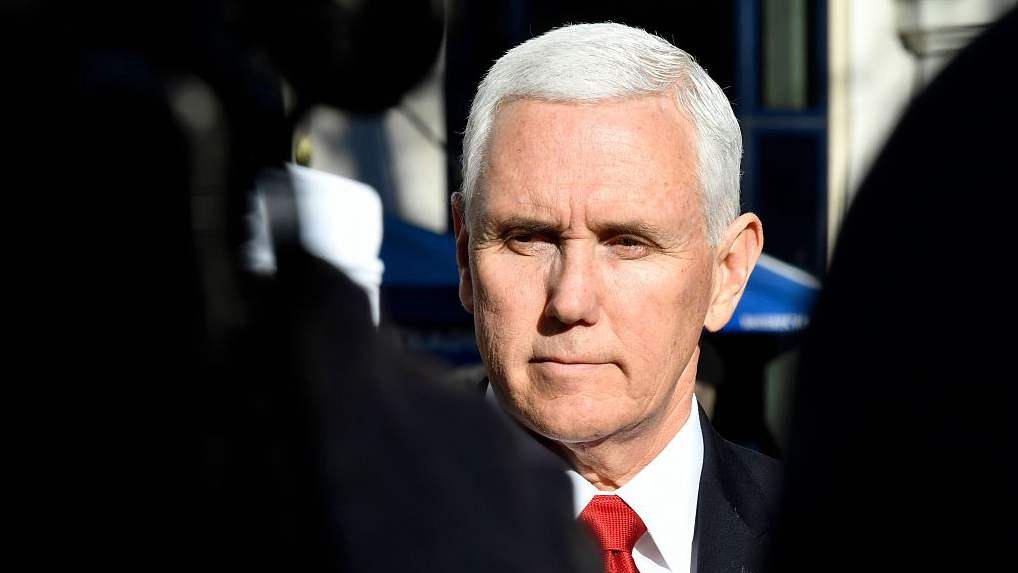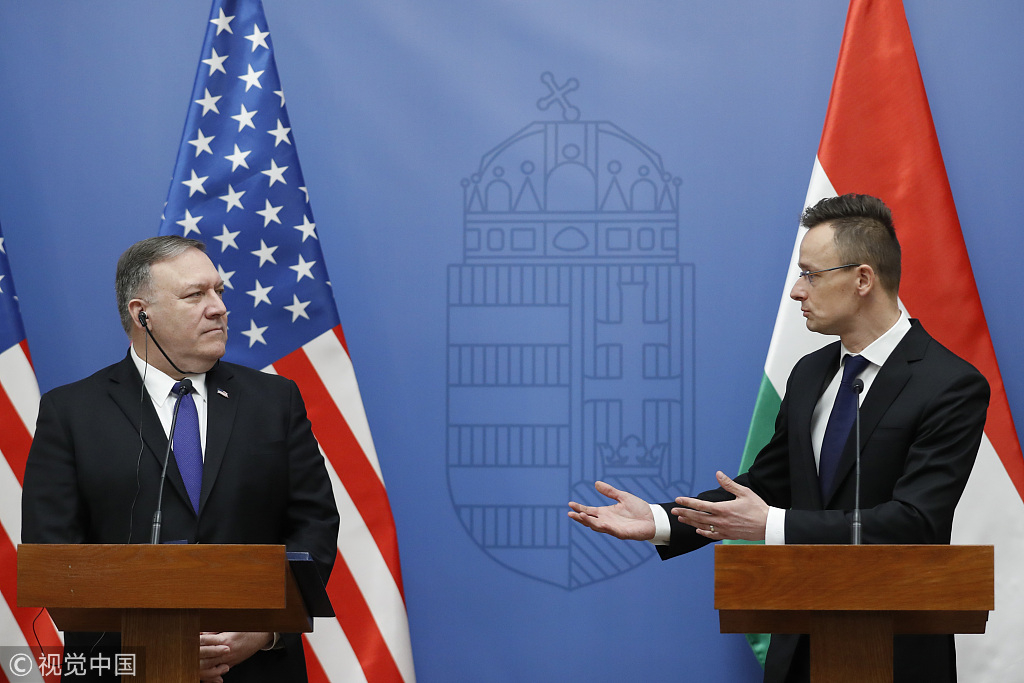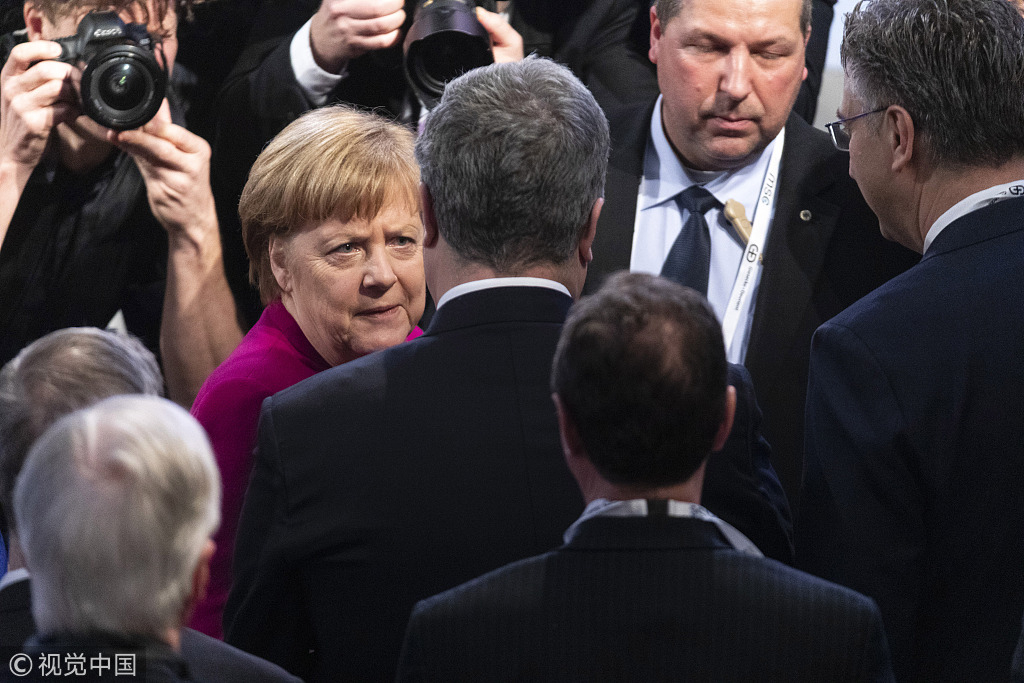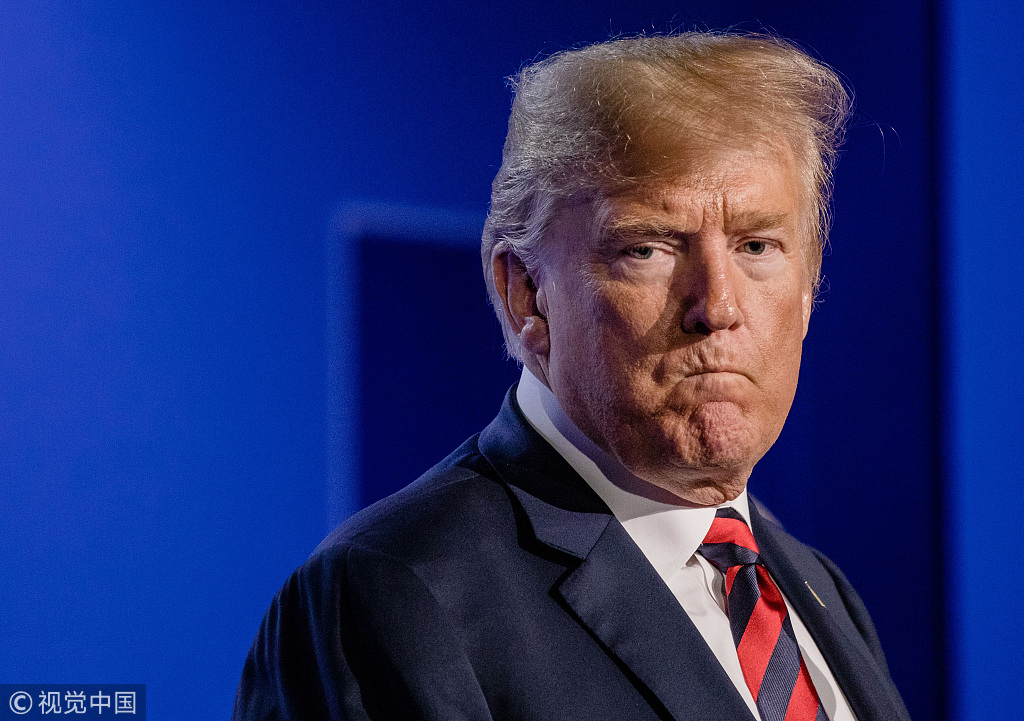
Opinion
07:50, 18-Feb-2019
America's Europe offensive falls flat
Updated
13:35, 18-Feb-2019
Tom Fowdy

Editor's note: Tom Fowdy, who graduated with an MSc in Chinese Studies from Oxford University and majored in politics at Durham University, writes on the international relations of China and the Democratic People's Republic of Korea. The article reflects the author's views, and not necessarily those of CGTN.
Last week, U.S. Secretary of State Mike Pompeo and Vice President Mike Pence traveled to Europe in what was most distinctively categorized as a bid to force the continent into following America's will on contentious security issues, visiting individual countries as well as attending the 2019 Munich Security Conference.
Throughout the duration of their trips, both senior officials took an aggressive tone against regional participants on numerous occasions. This has included criticizing them for an alleged lack of financial commitment to NATO, making threats on trade, demanding European countries ban Huawei, a Chinese technology firm and the world's biggest producer of telecoms equipment, from their 5G Internet networks, as well as insisting they follow them in scrapping the Iran nuclear deal.
None of it has gone down well. Washington's abrasive approach has left Europe feeling bitter and even resentful, leading to many commentators describing the transatlantic relationship as "broken."
All of this was out in the open. In the aftermath of the Munich conference, European leaders and diplomats responded by publicly rebuking and even questioning America's commitment to the international order, German Chancellor Angela Merkel describing the U.S system as having "collapsed into many parts."

U.S. Secretary of State Mike Pompeo appears with Hungarian Foreign Minister Peter Szijjarto at the foreign ministry in Budapest, Hungary, February 11, 2019. /VCG Photo
U.S. Secretary of State Mike Pompeo appears with Hungarian Foreign Minister Peter Szijjarto at the foreign ministry in Budapest, Hungary, February 11, 2019. /VCG Photo
As some notable examples, few were prepared to take Pence's Iran comments seriously, whilst Pompeo's insistence Slovakia and Hungary dump Huawei fell on deaf ears – the former saying there was "no evidence" its products would ever be used for espionage.
It is hard to press for another time where Europe-U.S. relations have ever been characterized by so much tension and division.
What exactly has gone wrong? And who is it to blame? All fingers should be pointed towards the administration in Washington itself.

Angela Merkel, Germany's chancellor, speaks with delegates during the Munich Security Conference in Munich, Germany, February 16, 2019. /VCG Photo
Angela Merkel, Germany's chancellor, speaks with delegates during the Munich Security Conference in Munich, Germany, February 16, 2019. /VCG Photo
By taking a contemptuous, self-interested and aggressive attitude towards long held partnerships and alliances on the European continent, the Trump administration is engaging in the wholescale vandalism of transatlantic ties believing that coercive unilateralism can substitute for diplomacy.
It has left regional countries questioning America's commitment to them and doubting as to whether Washington truly respects their interests.
The roots of the problem sit firmly with Trump himself. From the early days of his presidential campaign, he broke the norms of U.S. diplomacy by framing alliances in transactional, self-interest terms, insisting that partner countries should pay more, or that such treaty agreements best be characterized as literal protection rackets. America must always come first, and benefit the most.
The comments escalated a controversial requirement that all NATO states pay at least two percent of their gross domestic product on their military, which few European countries have done.
By the time Trump became president, he lived up to these comments quickly. He began to raise the question of NATO to European Union countries, unleashing threats of trade tariffs on the bloc thereafter.
This quickly set in stone an approach to Europe which has come to characterize the entire two years of his presidency thus far. That is: to simply threaten and attempt bully the continent into following his unilateral will.
It might be described aptly in three sentences: "do this or we'll abandon you," "do this or we'll tariff you" and "do this or we'll sanction you" – the latter referring to his administration's attempt to derail the Iran deal and force European businesses to follow the U.S. only sanctions.
In no incidence has the administration sought to respect, consider or adapt itself to the interests and position of Europe. It has in fact been tougher on these countries than it has on Russia.

U.S. President Donald Trump pauses during a news conference at the North Atlantic Treaty Organization (NATO) summit in Brussels, Belgium, July 12, 2018. /VCG Photo
U.S. President Donald Trump pauses during a news conference at the North Atlantic Treaty Organization (NATO) summit in Brussels, Belgium, July 12, 2018. /VCG Photo
Such behavior is the modus operandi of an administration that is determined to reassert American hegemony in a highly uncompromising way. It is a reaction to a changing world, one which no longer orbits unquestionably around Washington.
Although such an attitude is unusual given Europe at large's commitment to liberal democracy, it seems to reflect a belief that America's "command" of the international order is slipping away and that Europe is too considerate of itself before immediate US interests.
Either way, it is the wrong reaction to such a context. Treating the interests of allies with contempt does not change their interests, instead, it breeds resentment, insecurity, and division.
As a result, when Pompeo and Pence came into town, responses to their demands were not silenced for diplomatic courtesy, but in many cases the subject of vocal criticism.
In summary, the Trump administration seems negligent of the fact that alliances are mutual, reciprocal and highly cooperative.
Whilst some may be able to raise a valid point that Europe could "do more" in its approach to military spending, the belief that the continent is an object of contempt to be coerced into following Washington's bidding is vulgar and insulting to a partnership otherwise characterized by longstanding cultural and historical ties.
It is highly ironic that Washington has always sought to prevent the rise of anti-Americanism in Europe, yet this bulldozer approach to transatlantic ties may prove irreparable in the long run.
(If you want to contribute and have specific expertise, contact us opinions@cgtn.com.)

SITEMAP
Copyright © 2018 CGTN. Beijing ICP prepared NO.16065310-3
Copyright © 2018 CGTN. Beijing ICP prepared NO.16065310-3